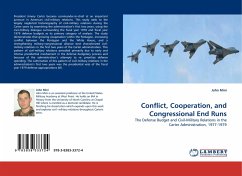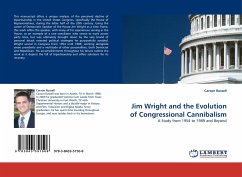President Jimmy Carter became commander-in-chief at an important juncture in American civil-military relations. This study adds to the largely neglected historiography of civil-military relations during the Carter years by examining the administration s first two years, using the civil-military dialogue surrounding the fiscal year 1978 and fiscal year 1979 defense budgets as its primary category of analysis. The study demonstrates that growing cooperation within the Pentagon, increasing conflict between the Pentagon and the White House, and a strengthening military-congressional alliance best characterized civil-military relations in the first two years of the Carter administration. This pattern of civil-military relations prevailed primarily due to early and intense presidential involvement in the defense budgetary process and because of the administration s attempts to re- prioritize defense spending. The culmination of this pattern of civil-military relations in the administration s first two years was the presidential veto of the fiscal year 1979 defense appropriations bill.
Bitte wählen Sie Ihr Anliegen aus.
Rechnungen
Retourenschein anfordern
Bestellstatus
Storno








